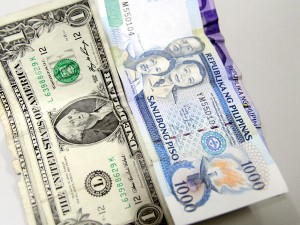The Philippines continued to lag behind its peers in the region in terms of e-commerce adoption, as the lack of adequate education and access to technology, as well as security concerns continued to hamper companies from having a more active engagement in online trade.
According to Monchito Ibrahim, executive consultant for e-innovations at the Department of Information and Communications Technology (DICT), only a marginal 1 percent of the country’s micro-, small- and medium-sized enterprises have an “online presence,” meaning they sell online and have the necessary payment channels and delivery services. MSMEs account for over 99 percent of registered businesses in the country.
“Technology and e-commerce play very important roles in the development of various sectors in the Philippines like manufacturing and retail. The DICT is the government’s response to improving access to these platforms and pursue inclusive growth and sustainable development,” Ibrahim said.
Of the items in the socioeconomic agenda of President Duterte, at least half are directed toward enabling the Philippines through information and communications technology, he added.
He said the DICT, together with the private sector, has led efforts to address the different challenges hampering a more wide-scale adoption of e-commerce in local companies and to democratize access to technology.
One of the current projects of the DICT is the JuanKonek Project, which targets to offer free Wi-Fi access in public places to more than 1,600 municipalities and cities. This was meant to bring Filipinos closer to e-commerce and other key technology platforms.
“Our target is that by next year, we will be able to provide free Wi-Fi to all the municipalities and cities all over the country—that’s more than 1,600 local government units (LGUs). Currently, we’ve provided free Wi-Fi to more than 300 LGUs. We set up the Wi-Fi in at least seven public sites per municipality and city,” Ibrahim said.
He said this move to provide free Wi-Fi would not only enable more MSMEs to start engaging in e-commerce, but would also allow more smartphone users to try online trading.
The DICT is partnering with private companies including PLDT SME Nation and Unionbank of the Philippines, and is looking to institutionalize its partnership with the Ureka Forum, the Philippines’ first and most comprehensive e-commerce mass conversion movement. The new agency is likewise working closely with the Department of Trade and Industry, which has released earlier this year the Philippine E-Commerce Roadmap.
Based on the Philippine E-Commerce Roadmap (PECR) 2016-2020, the DTI targets to have at least 10 percent or roughly 100,000 of all MSMEs in the country actively engaged in online trade by 2020. This is to enable more local industries to tap the significant prospects offered by e-commerce.
The country’s e-commerce industry is projected to increase at a compounded annual growth rate of 101.4 percent until 2018, fueled largely by a fast growing internet population. The target is to raise the contribution of e-commerce to the local economy to 25 percent from the current 10 percent.


